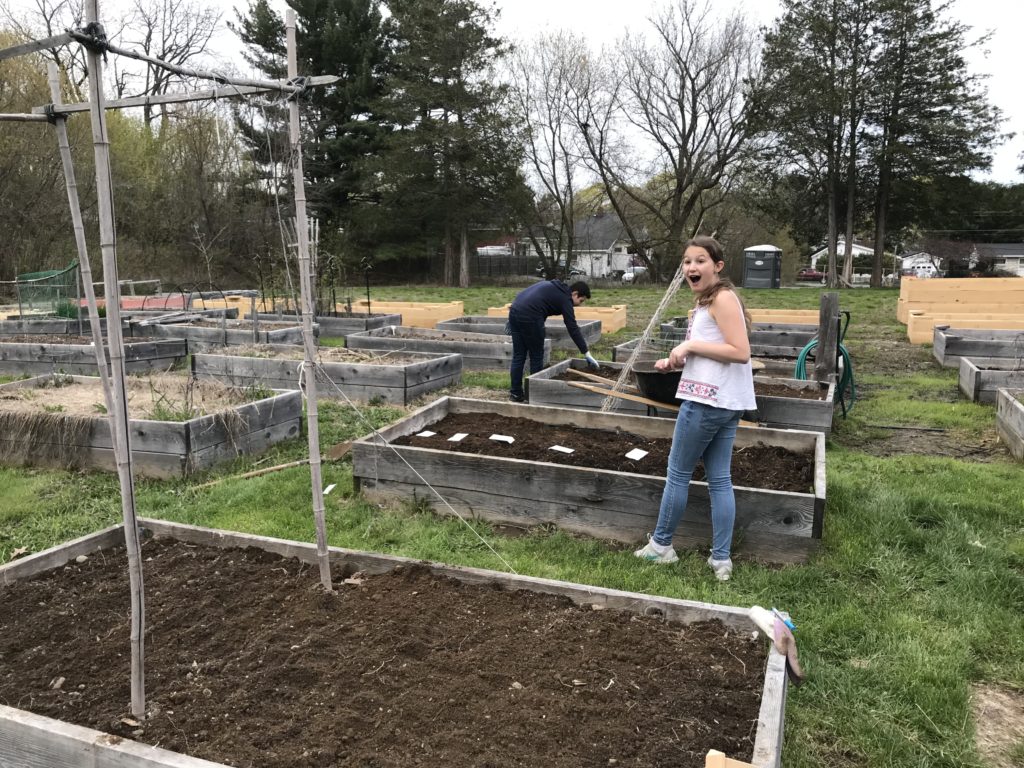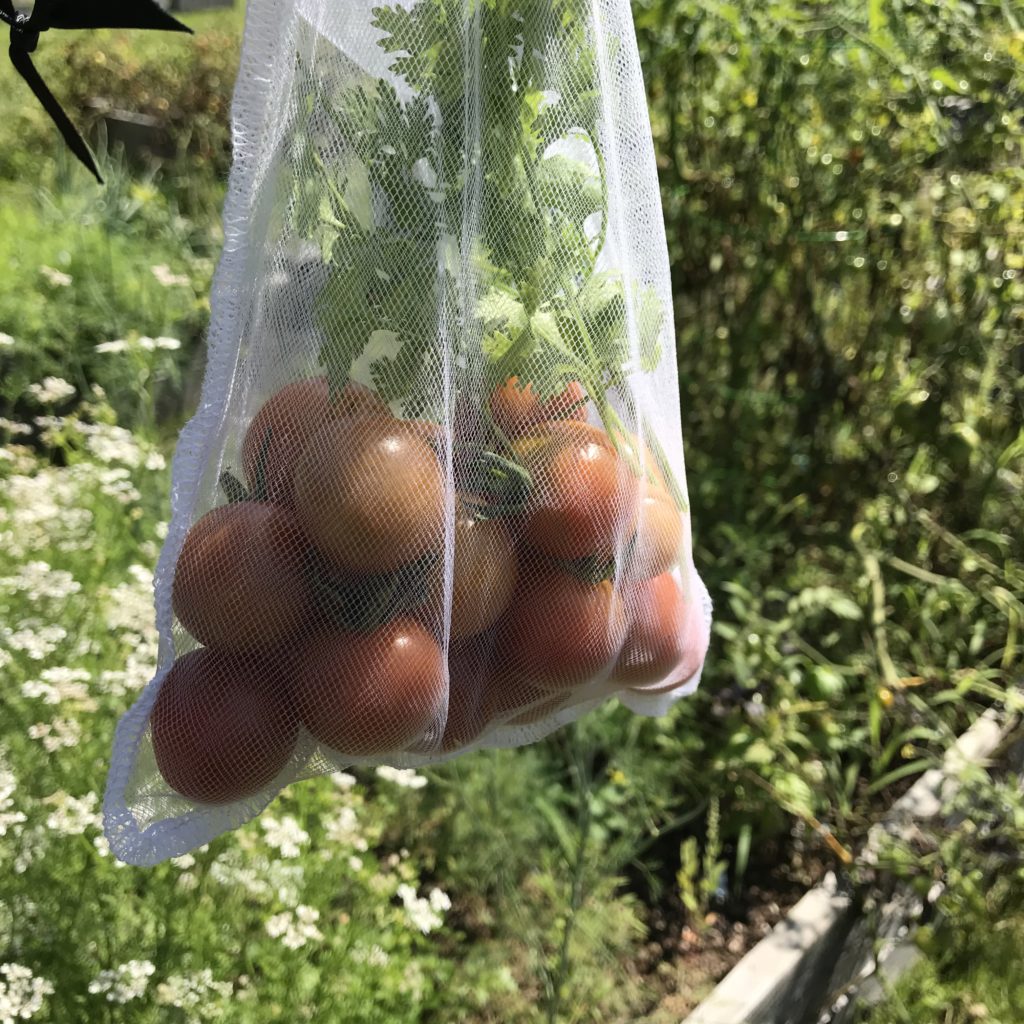What vegetable gardening taught me this year

We’ve reached that time in the season — the point where we bid goodnight to our garden beds and reflect on the season past. We make mental notes not to repeat the mistakes we made this year. And we begrudgingly pull those plants we carefully tended so that the soil can rest before next growing season.
Or, at least, it’s a begrudging action for me. Sometimes, it feels like I am giving up on the plants, even as they’ve turned brown and wilted.
This season was all about planning for winter. Beans and peas and corn went into the freezer along with tomato sauces and muffins. There are carrots waiting to be roasted and frozen still. Some onions that need to be picked and stored. And maybe some herbs to process and freeze.
This was the year my kids and I decided to go big with our growing season. We rented four garden beds from the Bangor Parks and Recreation department and spent many an evening weeding, harvesting and more. All that we’ve saved for winter is the literal fruit of our labor.
Overall, it was a successful venture. But I also learned a lot along the way that will help us have an even more successful growing season next year.
Pay closer attention to variety
To say I was psyched to order seeds is an understatement. I trolled the Fedco website for weeks, adding and removing things from my order until I finally submitted it in early February. (Note: one thing I love about the Fedco site is that your order remains there from visit to visit making this sort of deliberation a cinch.)
Still, despite my excitement and how much time I spend deciding what to order, I didn’t do a great job ordering a variety. My kids pointed it out as soon as the packets arrived.
There were four types of beans and four types of cucumbers. But I hadn’t ordered any herbs, squash or greens. We had two types of peppers, but no plans to grow seedlings. And what about tomatoes?
Next year, I’ll loop my kids in earlier with the planning. We’ll stick with just one variety of string beans along with peas. Perhaps will do some sugar snap peas too. We’ll only order the cucumbers we’re going to start indoors. And maybe we’ll add some new veggies to the mix like summer squash, carnival squash, spinach And we’ll consider adding some varieties of veggies we didn’t grow this year.
And, importantly, I’ll be sure to plant some more foods that we can eat in the moment. Our gardens were having on the veggies to save and light on the ones to eat immediately.
Pay closer attention to growing times
On a similar note, having a variety of foods to harvest and eat throughout the season is necessary — but not what I had this year.
When I was choosing which seeds to order, I focused first on the type and second on the description. I didn’t pay attention to the length of time it would take for the seeds to mature to harvest. As a result, we ended up with several plants that took three months or more to mature. When there are faster growing varieties available, perhaps it’s better to consider those?
Next time, we’ll be paying attention to those estimated growing times. It doesn’t mean we won’t get plants that take a while to mature but it does mean that we will try to order some that mature faster to ensure we have a more stable flow of harvests through the season.
Ask myself: What do I really want to do with this?
Another oops moment from my ordering: We planted cabbage wanting to store it for winter. Unfortunately, it was July before I noticed that my slow-growing cabbage had a little note indicating that it wasn’t a storage variety. Ooops. Couple that with the bugs that ruined it and … well, it wasn’t the best seed choice.
Moreover, I am not sure we really want a full crop of cabbage. So perhaps that’s a vegetable to buy instead of grow? Perhaps we’ll try Brussels sprouts next year, which I grew years ago in Connecticut. Or maybe we’ll do several varieties of greens.
Have more patience
This is probably the biggest lesson from this year. I was overzealous and insisted we get the seeds in the ground on Mother’s Day. It was literally all I wanted to do that day.
But it was a little too soon (and not for the reason you’re probably thinking). The last frost hadn’t happened yet, but the seeds were young enough that they were technically okay when it did. However, in my rush to plant, I didn’t wait for the annual compost delivery to the community garden. And planting before the soil could be mixed up in all its nutrient-filled glory was a mistake. Our crops did well, but I know they would have done better if I’d waited.
Next year, I will have a little more patience.
Giving and trading is a wonderful thing
I don’t know why this never occurred to me before but the great thing about growing in the community garden is that there are plenty of people to give to or trade with. So when my wax beans were growing like crazy, it was a no-brainer to offer them to Byron Hale, the master gardener there who happens to love them. And though I didn’t expect anything in return, he gave me a beautiful head of lettuce that was exactly what I needed.
Next year, I want to do a better job of giving and trading — with so much growing, it’s an easy way to ensure that everything we do grow gets used well.

It’s okay to change methods
Years ago, I canned jar after jar of dill pickles and my son gobbled them up all. But I can’t recall what recipe I used or where I found it. As a result, I haven’t been able to duplicate my former success. Nope, not at all.
Last year, I canned several batches of dill pickles. Despite trying several recipes, none of them met muster. This year I intended to try again … but the more I thought about it, the less I wanted to do it. Instead, I made half-sour pickles (my favorite) in the refrigerator (half-sours are fermented and cannot be canned). They were excellent. Next, I made refrigerator bread and butter pickles for my daughter. Another triumph! And finally, I did a small batch of refrigerated dill pickles for my son. They were good — though not quite what I was hoping for.
Next year I will try again. But, importantly, I will also forgive myself if I don’t feel like canning pickles or trying again on something that hasn’t been working. There are so many ways to make things. Why not experiment with less taxing ones?
What about you? Did you learn anything new this year?
